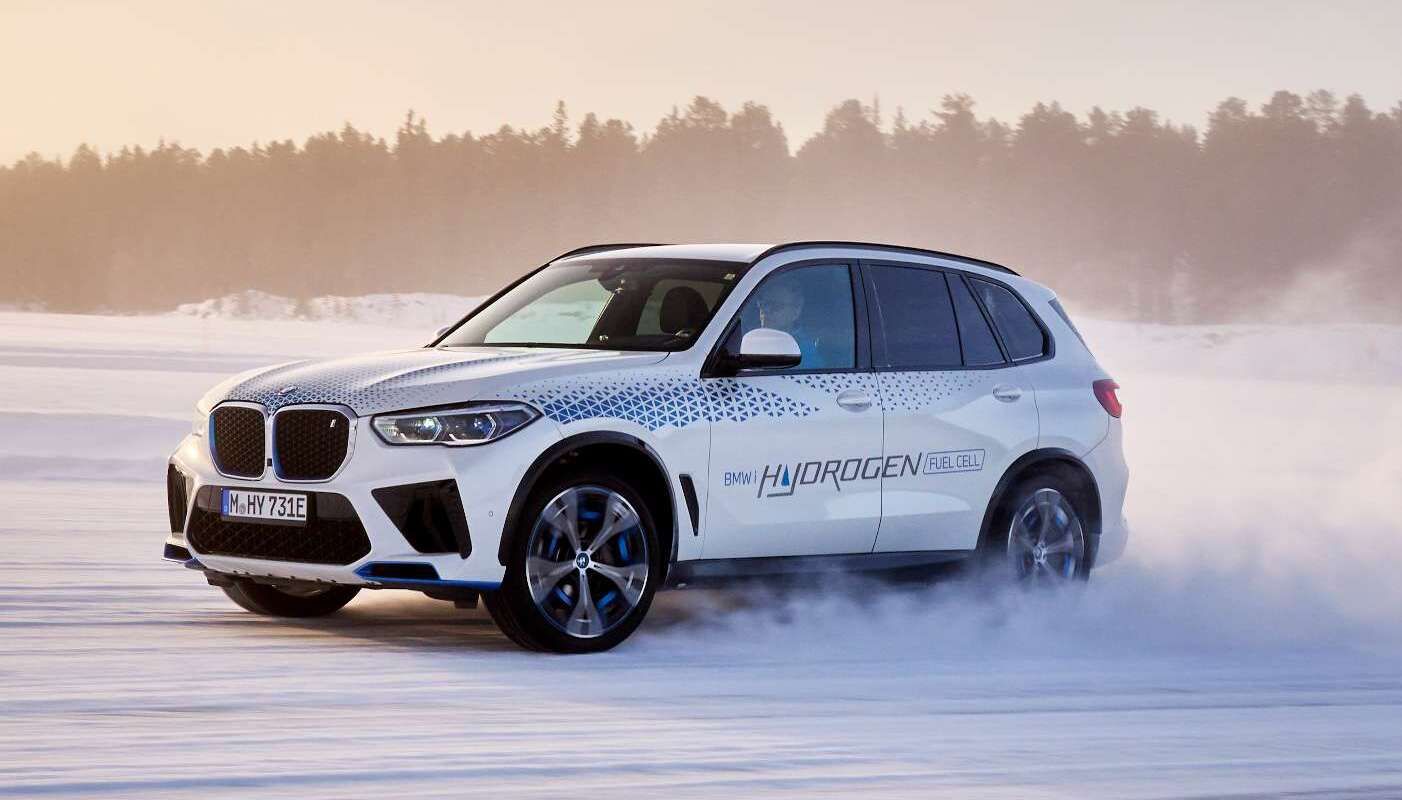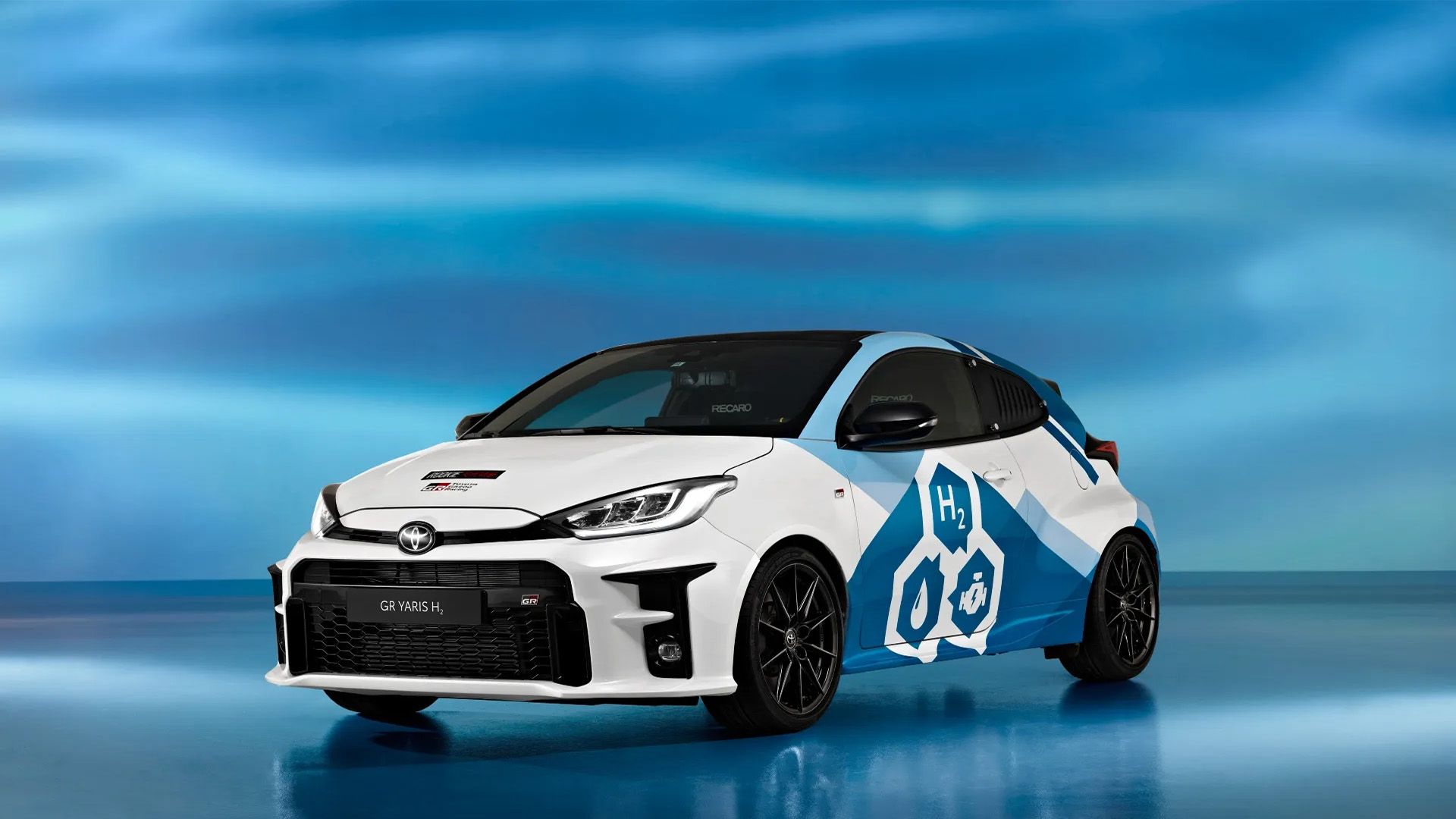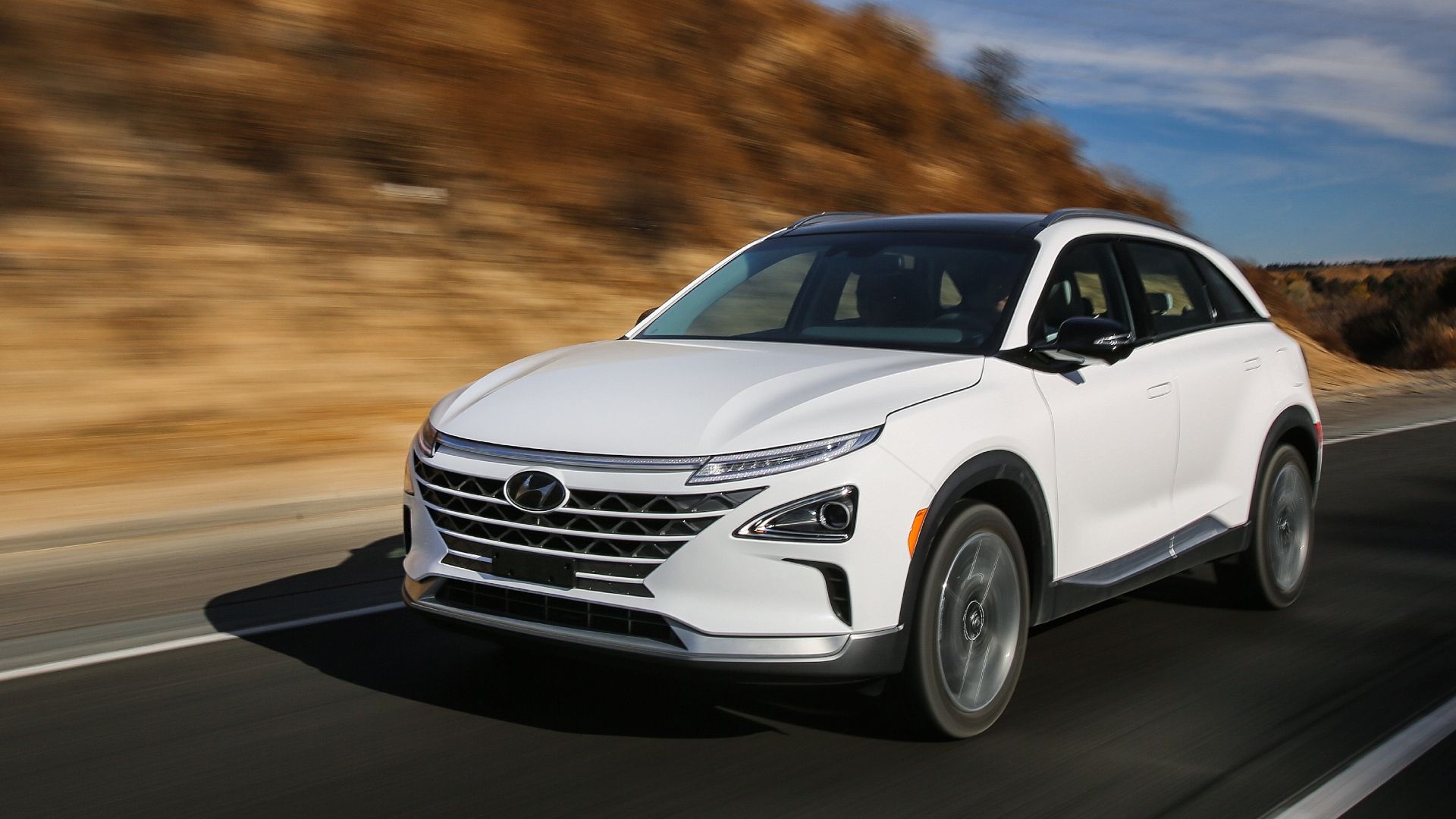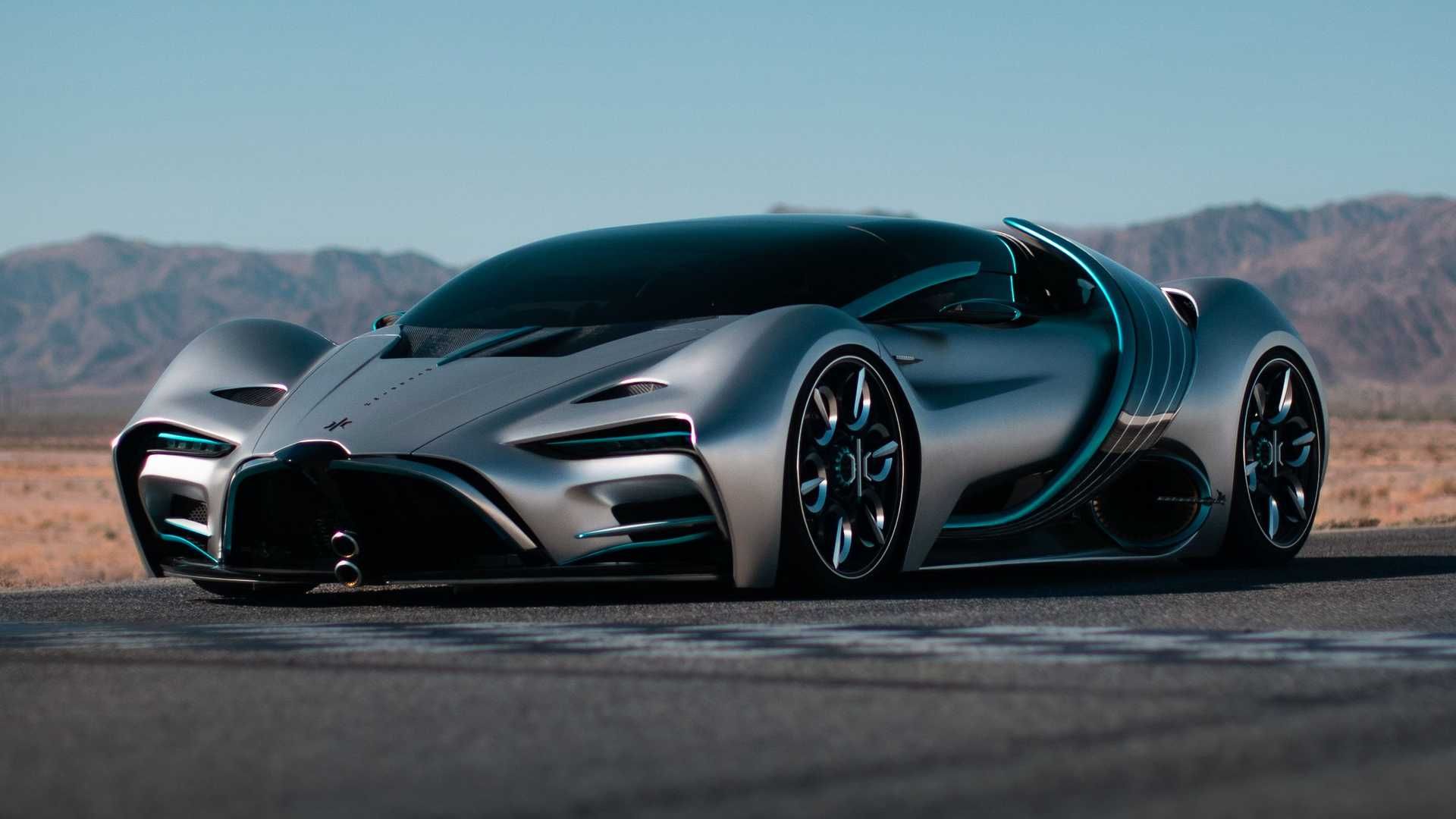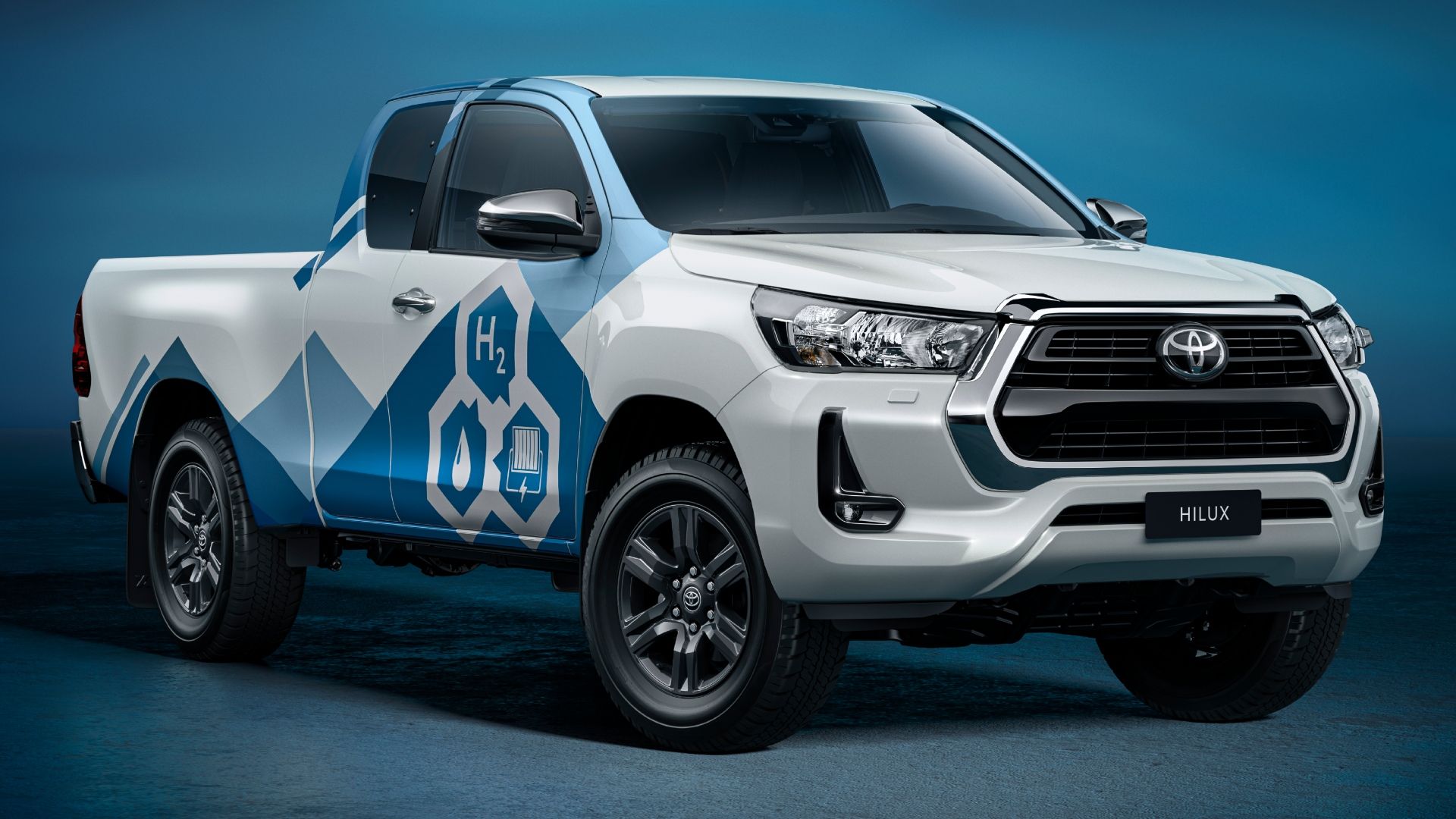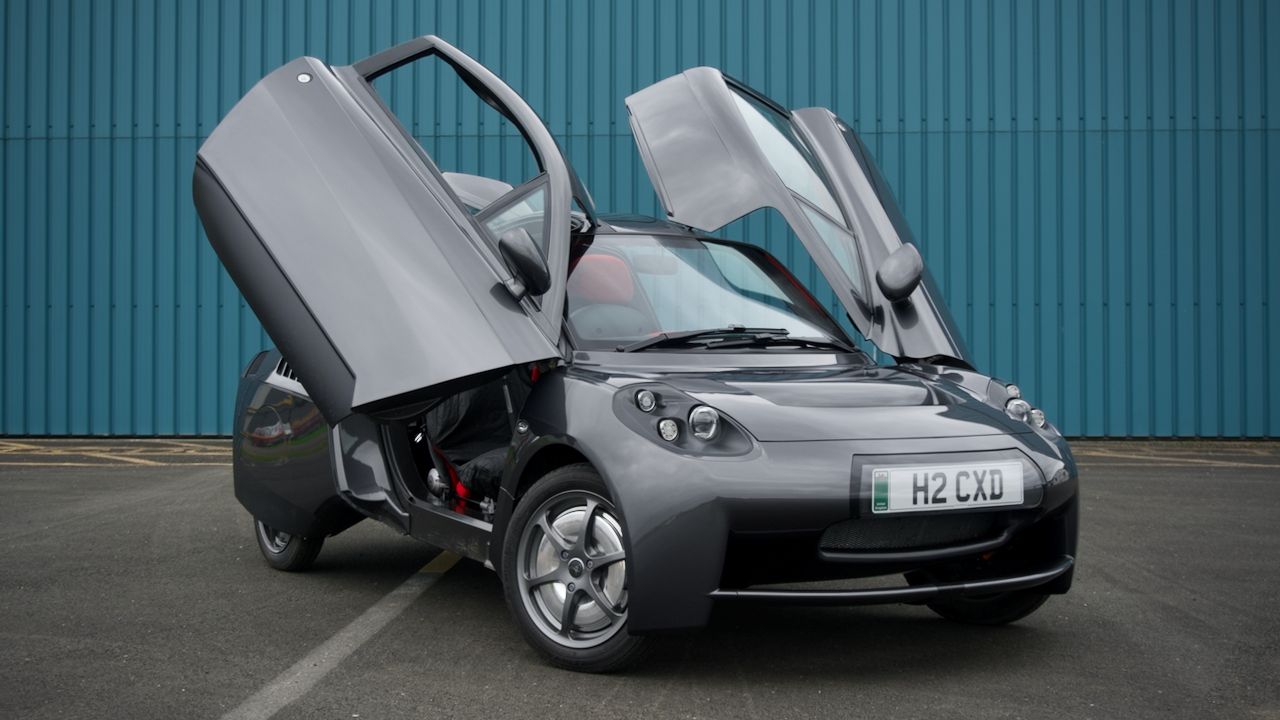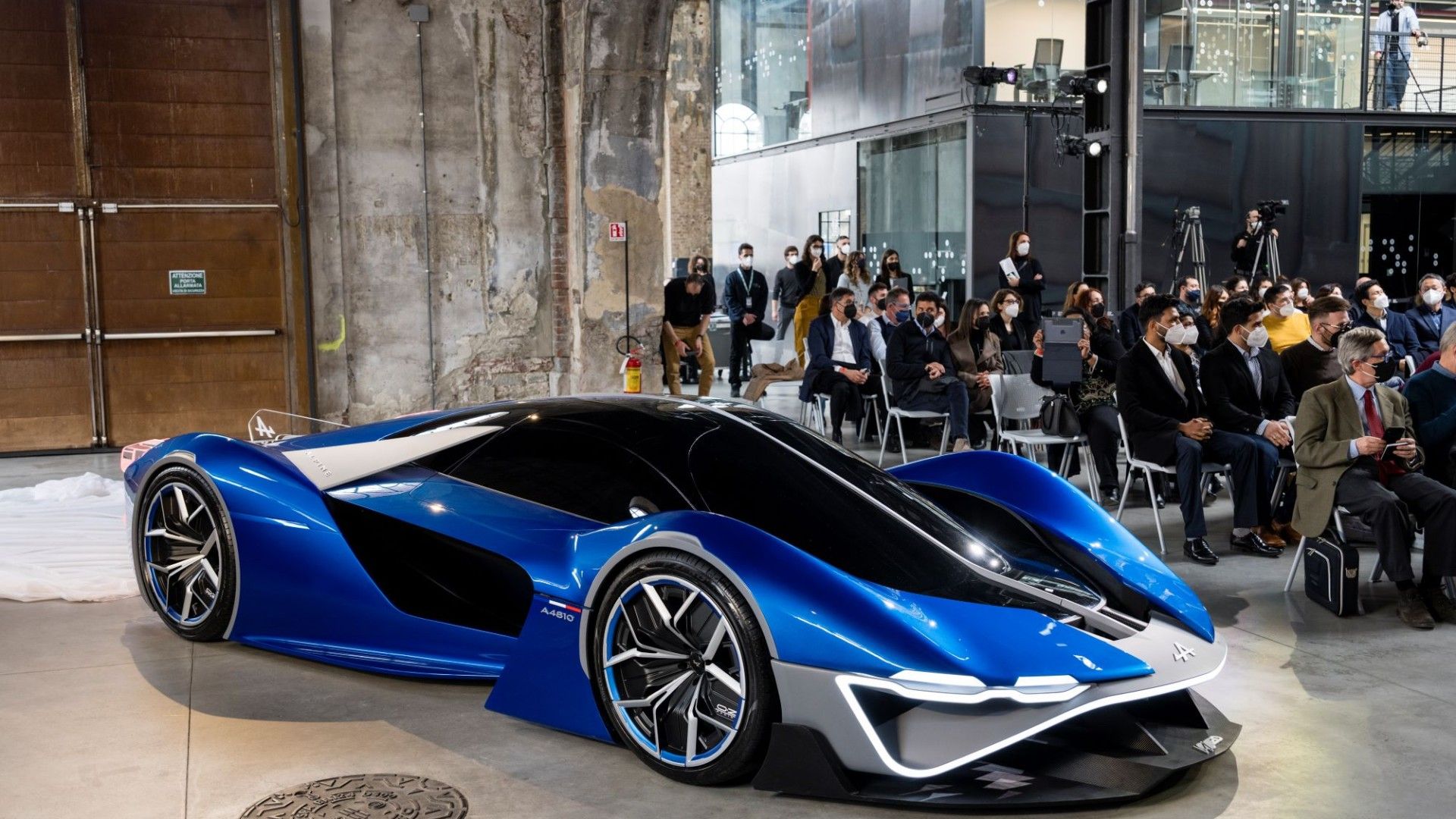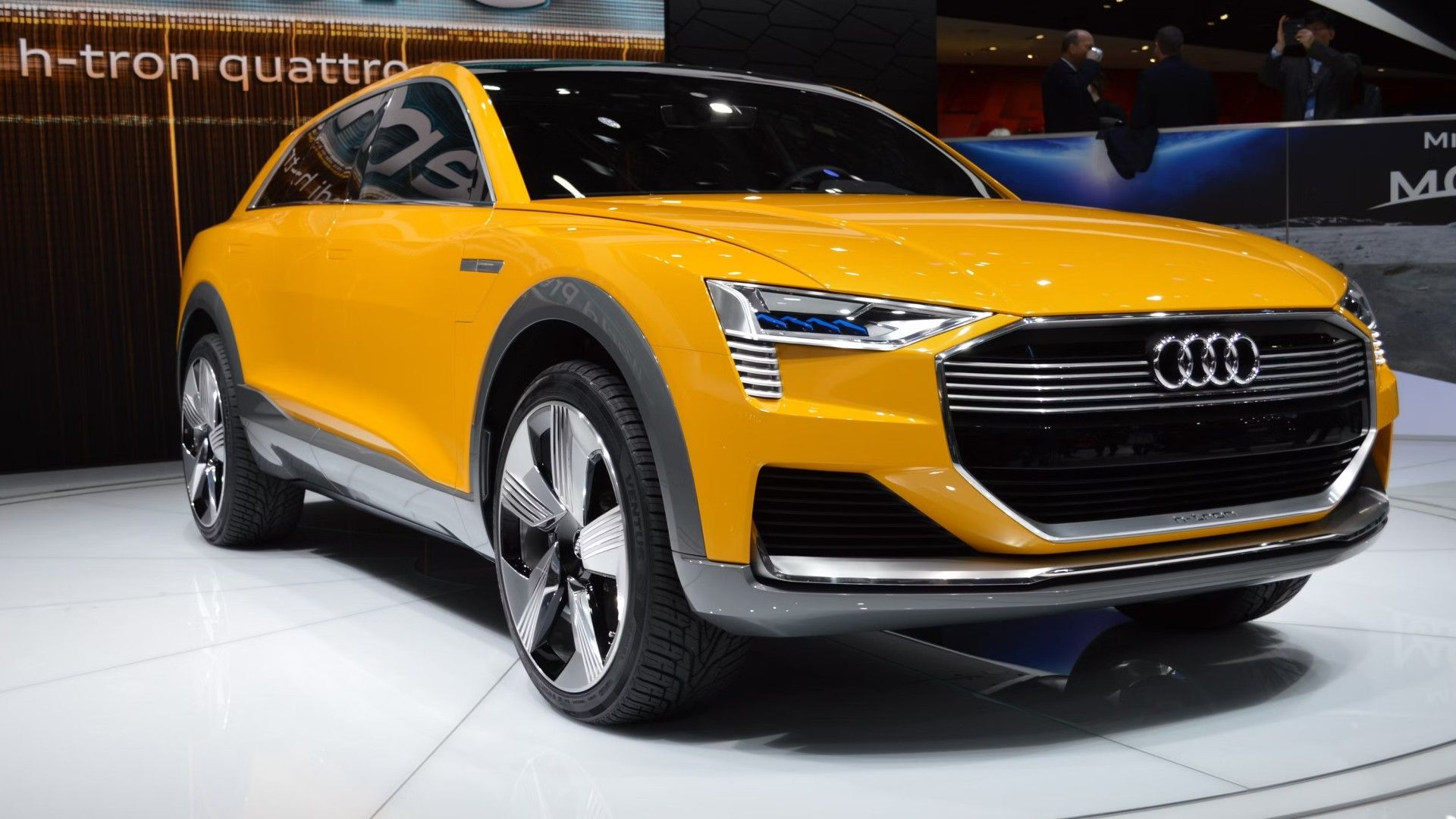Summary
- Hydrogen-powered vehicles are still in their early stages of commercialization and face challenges such as scarcity of refueling stations and technological adaptation hurdles.
- Established automakers like BMW, Toyota, Hyundai, and Honda are investing heavily in the development of hydrogen fuel cell technology, which will offer consumers more options in the future.
- Exciting prototypes and concept vehicles are currently being developed, such as the BMW iX5 Hydrogen, Hyundai N Vision 74, and Toyota GR Yaris H2, which have impressive performance capabilities and driving ranges.
As the world pivots towards adopting electric vehicles to reduce carbon emissions in the automobile industry, it's imperative not to overlook another viable option with immense potential of taking zero-emission vehicles to new heights. We're talking about hydrogen-powered vehicles, which have not yet received the same level of recognition as their counterpart electric vehicles. While millions of EVs have already been sold, hydrogen vehicles are still in their early stages of commercialization and have yet to attain significant market penetration. This can be attributed to a number of factors, including scarcity of refueling stations, technological adaptation challenges, and production hurdles.
owever, dare we say, the future of hydrogen fuel cell vehicles seems bright, as numerous established automakers such as BMW, Toyota, Hyundai, Honda, and others are investing heavily in the development of this cutting-edge technology. As a result, this will give consumers more options beyond the current limited offerings of models like the Toyota Mirai and Hyundai Nexo. With that being said, we are excited about the prospect of the hydrogen cars that will grace our roads in the near future. These 15 vehicles, currently in prototype or concept phases, are poised to set a new precedent in the zero-emission vehicle landscape.
Updated on September 6th, 2023: Sustainable alternatives within the world of cars are picking up pace due to technological advancements; hence, we bring you the updated list which includes the latest arrivals within the hydrogen car department.
1 BMW iX5 Hydrogen
BMW has been working on hydrogen fuel cell technology since 2000 and firmly believes these zero-emission vehicles will play a crucial role in combating global climate change, alongside battery-electric vehicles (a possibly perfect combo). In a bid to become a carbon-neutral company by 2050, BMW is accelerating its hydrogen vehicles development game. The German brand has already started creating its own fuel cells, the first of which will bring the BMW iX5 Hydrogen to life. Unveiled in 2021 and based on the iNext Hydrogen prototype, the BMW iX5 SUV is retrofitted with an electric motor, battery, and a fuel-cell stack.
The fuel cell electric system boasts a combined 401 horsepower. According to BMW, it has a top speed of more than 112 MPH and takes less than six seconds to accelerate from zero to 62 mph. With an impressive estimated driving range of 313 miles, this hydrogen-powered machine's performance won't even flinch at freezing temperatures. As per BMW, the iX5 Hydrogen achieved its full driving range even during cold-weather testing at minus 20 degrees (something that only EVs can envy). BMW has already launched a fleet of iX5s that will be tested by various target groups for trial and demonstration purposes.
2 Hyundai N Vision 74
There's a lot to unravel for us to bask in the "potential" awe-inspiring glory of the Hyundai N Vision 74. It's not just the N brand's debut hydrogen hybrid lab on wheels; it's a rolling tribute to the classic 1974 Pony Coupe Concept, designed by none other than the legendary Italian car designer Giorgetto Giugiaro himself. With over 671 horsepower (combined) and 664 pound-feet of torque, this futuristic beast could forge a path into a bold and sustainable tomorrow. Even though the original Pony Coupe never made it to production, the mere fact that Hyundai is daring to dream big with the N Vision 74 has us on the edge of our seats.
This hybrid powertrain with the lithium-ion battery and hydrogen fuel cell combination boasts incredible acceleration, enabling the vehicle to reach 0-60 mph in less than four seconds and a top speed of over 155 MPH. Moreover, it has a long driving range of over 372 miles. To top it off, 800-Volt fast charging technology can allow you to charge and refuel the hybrid car in five minutes. However, there are several rumors surrounding the production of this concept car. While some suggest the car is already under production, some indicate Hyundai will be swapping the N Vision 74 for the Pony Coupe concept.
3 Toyota GR Yaris H2
In December 2021, Toyota unveiled its cutting-edge hydrogen-powered concept car, the GR Yaris H2, which recently made its debut in August 2022 during the ninth round of the World Rally Championship in Ypres with a demonstration run. Unlike Toyota's Marai, which converts hydrogen fuel into electricity, the GR Yaris H2 combusts hydrogen as a fuel source, resulting in the "familiar sensory and acoustic sensations" that come with traditional combustion engines. The GR Yaris H2 is powered by a modified version of the standard GR Yaris engine, an impressive turbocharged three-cylinder engine.
While Toyota has not yet released official figures for horsepower and range, industry experts predict that the GR Yaris Hydrogen will generate approximately 268 horsepower and 278 pound-feet of torque, matching (or even surpassing) the performance of the multiple award-winning GR Yaris. Although the GR Yaris H2 is still in the early stages of development, the very idea of a hydrogen combustion vehicle from Toyota is giving us goosebumps. Toyota got the Mr. Bean fame, Rowan Atkinson, to demonstrate the car a month ago at Goodwood.
4 Honda CR-V FCEV
While Honda hasn't been as aggressive as its rivals when it comes to EVs (though we totally get it), it has ambitious plans for hydrogen fuel cell technology and aims to produce an FCEV based on its immensely popular CR-V. It is partly because Honda is one of the first manufacturers to embrace hydrogen as an excellent alternative fuel source and passionately pursued it for years. It is, therefore, no surprise that the Japanese company announced a significant expansion into its hydrogen technology with the CR-V FCEV (not an official name). Production of the vehicle will begin at the Marysville, Ohio, Performance Manufacturing Center (PMC) in 2024.
According to Honda's press release, it will be the first production vehicle in North America to combine both plug-in and FCEV technology. This FCEV is not an ordinary vehicle by any means, as it will allow customers to charge the car in areas with limited or no hydrogen fueling stations. Moreover, the automaker is optimistic that the CR-V FCEV's fuel cell system will double the durability of the current Honda Clarity while simultaneously reducing production costs by a whopping one-third. That's what hydrogen cars need!
5 2024 Hyundai Nexo
Hyundai introduced the Nexo in 2018 as part of its efforts to stay ahead of the competition from other fuel-cell vehicles such as Toyota's Mirai and Honda's Clarity Fuel Cell. Fast-forward to 2023, and the Nexo has emerged as one of the two hydrogen-powered vehicles still standing. The latest model, the 2023 Hyundai Nexo, has an electric motor powered by a combination of a 95-kW fuel-cell stack and a 40-kWh battery pack, resulting in 161 horsepower and 291 pound-feet of torque.
Looking at the future, Hyundai is expected to announce significant changes for the 2024 Nexo, which is anticipated to be more efficient (thanks to the third-generation fuel cell stack) and have a range of nearly 500 miles. This would represent a significant range of 354 miles. However, a company spokesperson claimed this could go up to 497 miles in the future.
6 Hyperion XP-1
Okay, here's a hydrogen car that is pretty insane, to say the least. Hyperion Motors, an American automobile manufacturer headquartered in Columbus, Ohio, made waves in August 2020 when it revealed its jaw-dropping creation, the Hyperion XP-1. And, guess what? It made headlines globally. After all, this hypercar is powered by hydrogen fuel cells and has been touted as a true game changer. The XP-1 made its public debut at the Los Angeles Auto Show in 2022, and its V-doors, low-slung design, complex intakes, and copious amounts of glass suggest the aliens made it.
As one of the most technologically advanced cars ever made, the XP-1's engine module is not just a high-power fuel cell but rather a futuristic powerhouse with hydrogen storage technology from NASA. What's more, the Hyperion XP-1 promises to deliver over 1,000 miles of range (oh boy). By using supercapacitors, hydrogen fuel cells, and four electric motors, the XP-1 generates a combined power output of over 2,038 horsepower. This enables the four-wheeled beast to achieve zero-to-60 mph acceleration in just 2.25 seconds and a top speed of 221 MPH.
Hyperion plans to build only 300 units of the XP-1, and while the pricing has not been disclosed, the level of technology and enthralling performance suggest a price tag of over $2 million.
7 Toyota Hilux Hydrogen
Toyota is aiming to increase its customer base for zero-emissions vehicles, and to do so, the company is developing a new Hilux prototype that will utilize second-generation fuel cell components from the Mirai drivetrain. This new FCEV pickup truck will be produced in the UK in 2023 with over $13 million in funding from the UK government. If successful, the automotive manufacturer will move to small-series production. While the vehicle's specific details remain a mystery, we can expect the incorporation of the second-gen FCEV system to result in impressive specs like all-wheel drive, at least 182 horsepower, and 220 pound-feet of torque.
Due to the truck's weight and aerodynamic limitations, it's unlikely to match the 402-mile range of the Mirai. Either way, this is an exciting step forward in the evolution of zero-emissions vehicles, especially in the realm of pickup trucks. It seems Toyota is determined to show that green can be mean.
8 NamX HUV
In a world where big automotive manufacturers are exploring hydrogen concept cars, the NamX has embarked on a mission to revolutionize the driving experience. Coming from the house of Pininfarina, it utilizes a permanent H2 tank and a removable setup of six capsules. With this patented technology, the NamX HUV can potentially increase the adoption of hydrogen vehicles significantly. This could be further bolstered by NamX's plans for home capsule delivery and new hydrogen capsule refueling stations, which will mitigate the concern of limited refueling options. The innovative use of six removable hydrogen capsules and a main tank can provide a solid range of almost 500 miles.
The vehicle will be available in two versions: a rear-wheel drive with 300 horsepower and a GTH version with all-wheel drive that generates 550 horsepower for those seeking a more powerful option. Moreover, the NamX HUV can accelerate from zero-to-60 MPH in just 4.3 seconds and has a top speed of 155 MPH. Scheduled to begin development this year, the NamX HUV is set to be released at the end of 2025 with an expected price range of $80,000-$100,000. With its unique and promising features, the NamX HUV has the potential to significantly disrupt the market and usher in a new era of hydrogen vehicles.
9 Land Rover Defender FCEV
Jaguar Land Rover has set a target to achieve zero tailpipe emissions by 2036. In pursuit of this goal, the company is exploring various prototype programs, one of which is Project Zeus. This initiative centers around the development of a hydrogen fuel cell vehicle based on the Land Rover Defender SUV. To make this program a success, Jaguar Land Rover has received partial funding from the Advanced Propulsion Center, a government-backed organization promoting the UK's low-carbon automotive industry. Additionally, the company has partnered with some of the world's most renowned research and development partners, including AVL, Delta Motorsports, and Marelli Automotive Systems, to develop this innovative vehicle.
Details on the vehicle's range and power remain unclear, but what we know is that it is equipped with a 90 kW hydrogen fuel cell high-output battery of around 300 kW from Delta Motorsport. It is married to two electric power units and integrated control electronics. The electric motors are worth 147 kW and have a capacity of 16.7 kWh. The powertrain includes electric drive units, a fuel cell stack, a large battery for energy recuperation, and a high-pressure tank for hydrogen storage. It is not yet clear when Land Rover Defender FCEV will be ready for public use, but the potential for this vehicle is certainly promising.
10 Riversimple Rasa
Here's a concept car that can travel 300 miles on just 1.5 kg of hydrogen. Take a moment to let that sink in (on average, 1 kg of hydrogen can provide a hydrogen car with a range of approximately 60-80 miles). The responsive and fun-to-drive Rasa can reach zero-to-60 MPH in 9.7 seconds. After debuting at the 2016 London Motor Show and teasing us with its potential, the two-seater vehicle from Riversimple is finally hitting the production line this year with a goal of manufacturing 5,000 units per year.
It's powered by a unique ultracapacitor system that enables high energy storage capacity and improved efficiency. Even the King of the UK Charles III took it for a test drive on his visit to Wales. We're excited to see it hit the road since this could be a solution for the super practical and inexpensive use of hydrogen in personal transportation.
11 Alpine A4810 Concept
After taking the first glance at the Alpine A4810, you might hear a voice inside your head yelling — "It's a Ferrari! No, wait! It's a Lamborghini". However, it's neither. Famous French automotive company, Renault's, automotive division — Alpine, has come up with this hydrogen hypercar. Alpine is also responsible for the company's Formula One team, so there cannot really be any doubt about the car's performance. This stunning-looking car could be Renault's foundation for building more practical and conventional hydrogen-powered vehicles.
As for the A4810 Concept, the company has revealed that it might produce this car or its variation in limited numbers. The car is designed by students at Turin’s reputed Istituto Europeo di Design and seems to be massively inspired by the Formula 1 model. The car is at least a decade ahead of its time, hence, there are no performance numbers available. Oh, by the way, the 4810 is the height of the tallest peak in the Alps, Mont Blanc.
12 H2X Warrego
The H2X Warrego is a full-blown hydrogen fuel truck that is all set to commence production in Australia later this year. The Australia-based automotive company that specializes in zero-emission vehicles, especially hydrogen fuel cell electric vehicles are the experts in manufacturing trucks and vans. The company claims that the Warrego was designed to rule tough terrains. It is expected to serve construction sites, mining locations, and similar challenging environments.
The rugged truck is built around an award-winning frame that can help the driver maneuver without any worries about damaging the vehicle. The estimated range is 248.5 miles and the estimated peak power is 349 HP. Warrego also estimated the 0 to 62 MPH to be 8.1 seconds and the top speed is speculated at 81 MPH. H2X has immediate plans to make the Warrego available in Europe. The company is yet to reveal its plans to make it available in the U.S. but has made the specs available.
13 Renault Scenic Vision
Renault's Scenic Vision is a concept car that shows the company's prowess to harness the future. The crossover is said to be designed while keeping accessibility in mind. The French automaker emphasizes the fact that the car is meant to serve the driver in every way possible. The cockpit is a key highlight of the Scenic Vision and reflects its name quite well. The large screen is fitted right in the center to give the driver maximum visibility. The company claims that the size of the windshield has increased by 24-percent.
The onboard facial recognition is another standout feature of the Scenic Vision. Renault has dropped the B-pillar and has designed the seats to adapt to the body shape of the passengers. Can comfort get any better? We doubt. The interior is fitted with dichroic surfaces that give off vivid colors when in contact with direct light. A production car inspired by this concept car could hit the streets by 2024 or 2025.
14 Forze IX
We cannot really talk about hydrogen-electric cars and not have the fastest one — Forze IX on the list! The Dutch hydrogen electric vehicle racing team has been working on the IX for nearly three years. The efforts have finally paid off as Forze IX is the fastest hydrogen race car in the world, on its way to winning the championship. With its prowess, the Forze plans to take this car out for tougher challenges such as the GT Class of the Supercar Challenge which happens to be the fastest racing division. Forze aims to compete against the likes of Porsche and Lamborghini.
The car gets its insane power from a supercapacitor accumulator and two independent EKPO fuel cell systems that produce its electricity. The Forze IX is a true engineering marvel that is set to conquer the world of hydrogen race cars. The Forze IX boasts a top speed of 186.5 MPH and can go from 0 to 60 in less than 3 seconds.
15 Audi h-tron Quattro
Electric vehicles, gasoline-powered vehicles, race cars, supercars, no matter the department, there is always an Audi to compete with the others. The German automotive manufacturer has been at the forefront of car development for ages and their h-tron Quattro concept is a testament to the same. Audi revealed the h-tron quattro uses the fifth generation of fuel cell technology and lighter-weight materials.
The power output of up to 110 kW is rather impressive, and so is the driving range of up to 373 miles. The SUV sports a coupé-like exterior appearance. It also boasts a low drag coefficient of 0.27 and a horde of pilot features to assist the driver.

